#the old vic
Text
Last April, Andrew spoke at The Old Vic Tomorrow Gala fundraiser in support of their new Backstage Building, a six-storey building for creativity, education and community. Today he attended the burying of a time capsule in what will be the foundations of that new building.


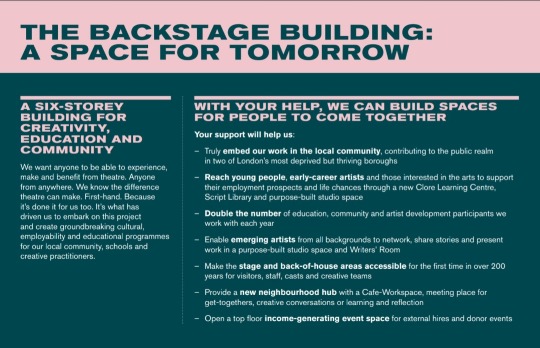
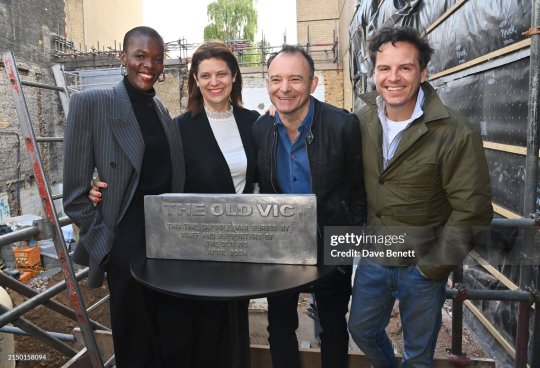


LONDON, ENGLAND - APRIL 29: Sheila Atim, Old Vic Executive Director Laura Stevenson, Old Vic Artistic Director Matthew Warchus and Andrew Scott
24 notes
·
View notes
Text
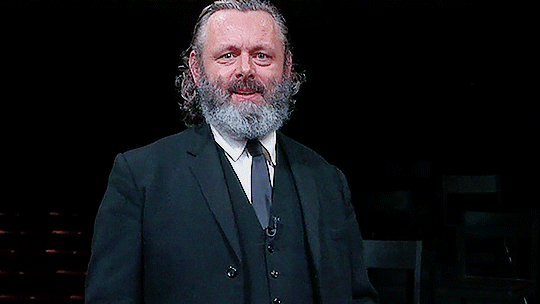
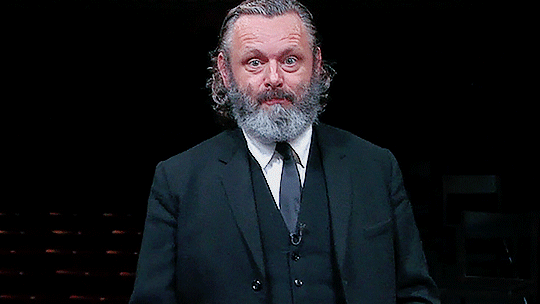



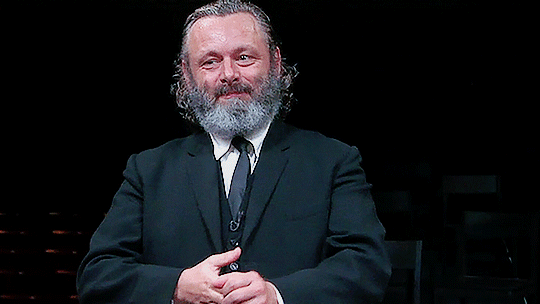

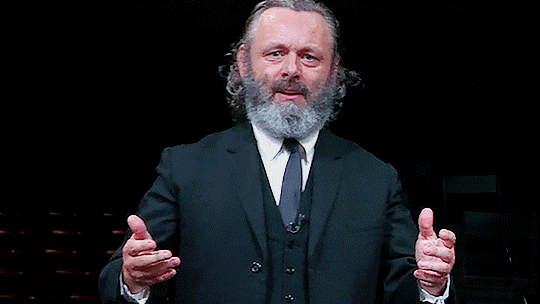
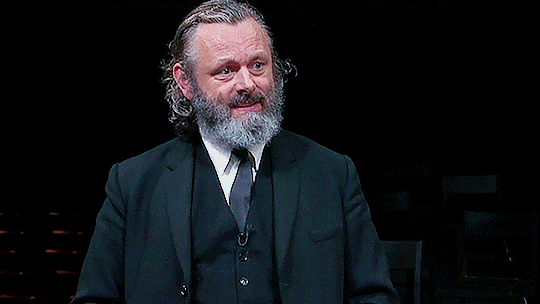
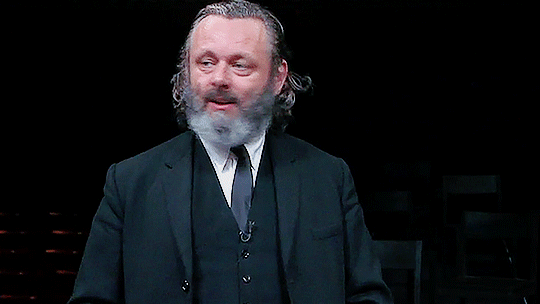
Faith Healer - 19/09/2020 #28
84 notes
·
View notes
Text

😌@reniadeb😌
#so close#live aid#live aid musical#bob geldof#the old vic#meme#funny#memes#relatable#twitter#comedy
23 notes
·
View notes
Text

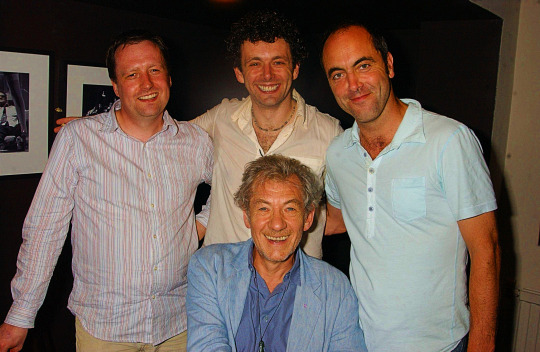
Michael Sheen, Julian Kemp, Sir Ian McKellen and James Nesbitt attend the backstage party following "24 Hour Plays" at The Old Vic Theatre in London, England (2005)
#michael sheen#michaelsheenedit#sir ian mckellen#julian kemp#james nesbitt#the old vic#welsh seduction machine#michaelsheendaily
22 notes
·
View notes
Text
'At the start of our interview, Andrew Scott and I are squeezing into a booth in the restaurant at the British Film Institute. It is very similar to the one occupied by Billy Crystal and Meg Ryan's characters in When Harry Met Sally. Quick as a flash, the actor smiles at me and says, “I'll have what she's having.”
Scott goes on to remark that he often dreads reading interviews with actors and hopes this won't be another that he recoils from. “Sometimes talking about acting can be reductive and a bit boring. Of course,” he adds, breaking into a wry, self-mocking grin, “I'm not like that. I'm completely fascinating. Everything I say is a bon mot. It's epigram after epigram. It's like sitting with Oscar Wilde... Although I have better hair!”
Witty. Mischievous. Charming.
These are precisely the qualities that catapulted Scott to stardom as Moriarty in BBC1's worldwide hit drama, Sherlock. People were already talking about him as a striking new talent after his first brief, if completely scene-stealing, 10-minute appearance in Steven Moffat and Mark Gatiss's compelling modern-day reworking of Sir Arthur Conan Doyle's classic detective stories.
His performance as Holmes's dastardly foe – by turns mesmerising and menacing – won Scott the best supporting actor Bafta award last year, beating his co-star Martin Freeman (who plays John Watson in Sherlock) in the process.
It was not exactly an overnight success for Scott – the 37-year-old Irishman had for many years been turning in very creditable, if not such conspicuous performances in dramas such as Lennon Naked (in which he gave a memorable Paul McCartney opposite Christopher Ecclestone's John Lennon), The Hour, John Adams and Band of Brothers.
But Moriarty, who appeared to come to a sticky end at the end of the last series on Sherlock, transformed Scott's profile. Moriarty is the archetypal baddie who has all the best lines, and his popularity meant that the actor was soon being offered leading roles in ITV1 dramas such as The Town and The Scapegoat.
Scott, who was raised in Dublin, where his father worked in an employment agency and his mother was an art teacher, has the volume turned down in real life and has no need to turn the dial up to 11 in the way that Moriarty does. But you can see that he still possesses the same razor-sharp instincts as Sherlock's arch-enemy.
The actor is the first to acknowledge that playing the role of Moriarty has moved his career up several notches. Picking at a croissant, he reflects that: “Sherlock has changed all our careers, and I'm really pleased about that. It gives you the benefit of the doubt because executives like to see recognisable faces.
“It was overwhelming to be on a TV show that is quite so popular. That took me totally by surprise. People had an instant affection for it from the first episode. The reaction was extraordinary. People still come up to me in the street all the time, wanting to talk about it.”
Sherlock fans are known as some of the most passionate in the business, but Scott says they are generally delightful. “There is this impression that the fans are crazy, but they're not – they're very respectful. They don't overstep the mark. I get a lot of fan mail. Of course, some of it is a bit creepy, but mostly it's very moving and creative. People send me drawings and their own versions of Sherlock stories. It's a source of escapism for people and that's great.
“I'm an enthusiast for people, and I don't want them to become the enemy. I've seen that happen to colleagues who are disturbed the whole time, but there's a certain degree of control you can have if you keep yourself to yourself. The kind of actors I admire move through different characters and genres. That's the kind of actor I try to be. If you want that, you have to be circumspect about your private life.”
Scott thinks the character made such an impact because, “Moriarty came as a real surprise to people”. He adds: “He doesn't have to do the conventional villain thing. He is witty, and people like that. He is also a proper match for Sherlock. He's very mercurial, too. I have since been offered to play a lot of different characters, and that's because Moriarty is a lot of different characters. He changes all the time.”
The next legacy of the “Sherlock Effect” is that Scott is starring in a one-off BBC2 drama entitled Legacy. An adaptation by Paula Milne of Alan Judd's bestselling 2001 espionage novel, this is an absorbing contribution to the BBC's “Cold War” season. In this film, set at the height of the conflict between the UK and the USSR in 1974, which goes out on Thursday 28 November, Scott plays Viktor Koslov, a KGB spy.
Charles Thoroughgood (Charlie Cox), a trainee MI6 agent, tries to reconnect with Viktor, an old friend from their Oxford days, in an attempt to “turn” him. However, Victor adroitly turns the tables on Charles with a shocking revelation about the British spy's family. Deliberately shot in Stygian gloom, Legacy captures the murky world of the secret services where cynicism and duplicity are part of the job description. Its tagline could well have been: “Trust no one.”
The film convincingly conjures up the drabness of the 1970s, all three-day weeks, petrol rationing and power cuts. Scott says: “Characters in those days called from phone boxes – whoever does that now? The film fits the era. It has a melancholic tone. It's very brown and downbeat.”
Scott particularly enjoyed playing the ambiguity of Viktor's character. “I like the idea that you don't know who he is. It's important that you feel for Viktor and his predicament. You have to feel he's a human being with a family. But both he and Charles are elusive figures – it's not clear whose side they're on. It's not at all black-and-white, and that's why the film is so shadowy.”
The actor boasts a terrific Russian accent in Legacy. Where did it come from? “There isn't a huge amount of footage of Russians speaking English as a second language, so I started looking at Vladimir Putin videos on YouTube. But then Putin introduced anti-gay legislation this summer – so, being a gay person, I switched to Rudolf Nureyev videos instead. It was another Nureyev defection of sorts!”
Scott is low-key on the subject of his sexuality. “Mercifully, these days people don't see being gay as a character flaw. But nor is it a virtue, like kindness. Or a talent, like playing the banjo. It's just a fact. Of course, it's part of my make-up, but I don't want to trade on it. I am a private person; I think that's important if you're an actor. But there's a difference between privacy and secrecy, and I'm not a secretive person. Really I just want to get on with my job, which is to pretend to be lots of different people. Simple as that.”
Scott is very much getting on with the job at present. He has many intriguing projects in the pipeline, including starring in Jimmy's Hall, the new Ken Loach movie about a political activist expelled from Ireland during the “Red Scare” of the 1930s. He is also appearing with Tom Hardy and Ruth Wilson in Locke, a film about a man whose life is falling apart, and in The Stag, a movie about a stag weekend that goes horribly wrong. In addition, he is headlining alongside Bill Nighy, Dominic West and Imelda Staunton in Matthew Warchus's movie Pride, a true story about an alliance between the mine workers and the lesbian and gay community during the 1984 miners' strike.
If he can possibly find any spare time, Scott is also open to comedy offers. “Everything in life has to have an element of comedy about it. I did Design for Living at the Old Vic in 2010 – Noël Coward was a master of comedy. The audience were convulsing every night. It's such a joyous feeling to hold a pause and wait for the laughter. There is no better high. Forget about drugs!”
But despite the fact that producers are now cold-calling him like overeager mis-sold PPI salesmen, Scott won't be rushing into the first role he's offered. One positive by-product of his success is his ability to be choosy about what he does. He observes: “You have to be brave to turn things down, but there is a certain power to that. I've had offers to do more regular TV series, but I don't regret rejecting them. If money and fame are not your goals, then it becomes easier. American agents use the expression, 'this could be a game-changer'. The implication is that you want the game to change. But I don't. I don't have a plan. I like unpredictability and randomness.
“People get distracted by box-office figures and take jobs because they think it will advance their careers. Of course, it's nice to get a big cheque and be able to buy a massive house, but my view is that we're not here long, so why not do something of value?”
So Scott is very happy with where he's at. “To do all these different things is a dream for me. My idea of a successful actor is not the most recognisable or the richest – it's someone who is able to do a huge amount of different stuff. I don't want to be known for just one thing.”
It's true that Scott is now broadening his career far beyond Moriarty. But I can't resist one final question on the subject: Is there any chance that Moriarty will, like his nemesis, be making a Lazarus-like comeback in the new series of Sherlock? Scott has, after all, been photographed filming scenes for the upcoming third season.
“People ask me that every day. It's a small price to pay for having been in such a wonderful show,” he teases. But he is forbidden from spilling the beans about Moriarty's fate in Sherlock even to close family members.
So has Moriarty played one more dastardly trick on us by faking his own suicide? Or are the scenes the actor has been shooting merely flashbacks? Scott could tell us, but then – like some ruthless Cold War spy – he would have to kill us...'
#Legacy#Andrew Scott#Moriarty#John Adams#The Hour#Lennon Naked#Martin Freeman#Benedict Cumberbatch#Steven Moffat#Mark Gatiss#British Film Institute#Sir Arthur Conan Doyle#Christopher Eccleston#Band of Brothers#Paul McCartney#The Town#The Scapegoat#Design for Living#The Old Vic#Noel Coward#Paula Milne#Alan Judd#Viktor Koslov#Charlie Cox#Jimmy's Hall#Locke#The Stag#Matthew Warchus#Pride#Imelda Staunton
7 notes
·
View notes
Text

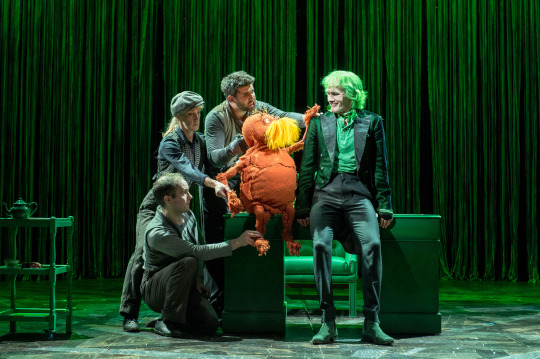
The Lorax from The Lorax at The Old Vic
19 notes
·
View notes
Text


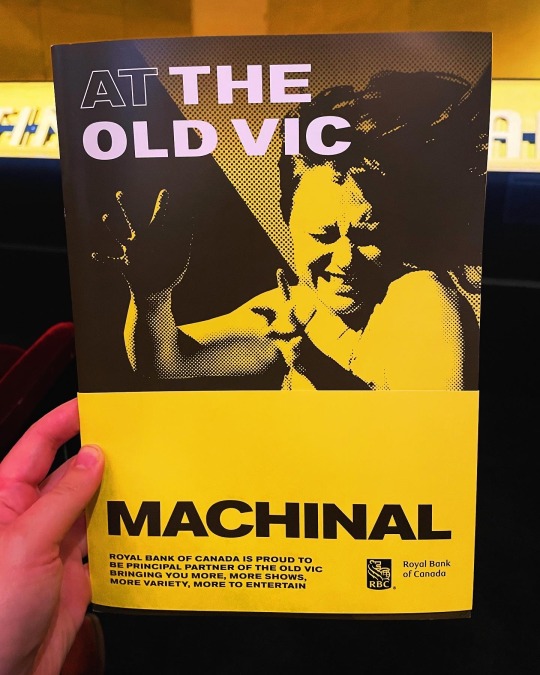

Impromptu visit to the theatre on a school night! Realised I did actually want to see this when the actors came out. Thank you to my friend for inviting me.
18/04/2024
4 notes
·
View notes
Text




x
#Colin Morgan#Mark Gatiss#doctor who#Sherlock#Merlin#You know what? Tumblr needed this..#<33#The old vic#bnw#drwho#fandoms
50 notes
·
View notes
Text

Morfydd Clark
As Cordelia in the final scene of ‘KING LEAR’
With Harry Melling and the late and great Glenda Jackson
November -December 2016
◼ Morfydd Daily
#morfydd clark#morfydd clark daily#morfydd daily#king lear#cordelia#glenda jackson#harry melling#theater#the old vic#color edits#morfyddclarkdaily.com
5 notes
·
View notes
Text
London to get Oedipus twice
Two separate productions of Oedipus have been announced for the London stage.
Mark Strong and Lesley Manville are starring in one production, and Rami Malek and Indira Varma will lead the other.
Continue reading Untitled

View On WordPress
2 notes
·
View notes
Text



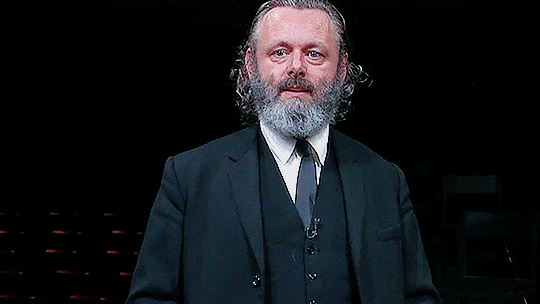




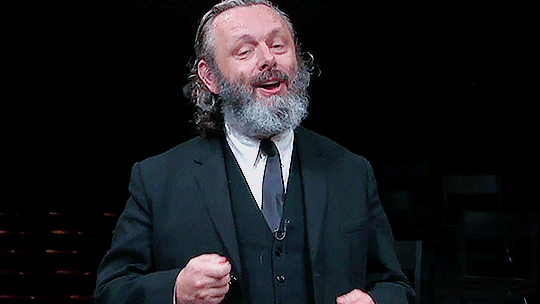

Faith Healer - 19/09/2020 #30
40 notes
·
View notes
Text
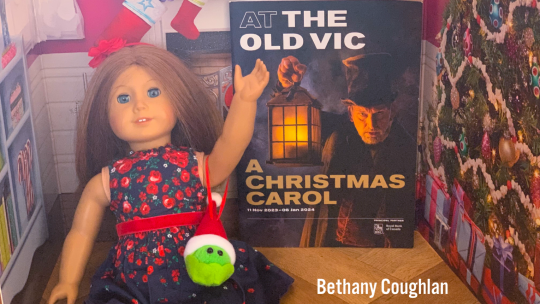
Hi everybody I had a fantastic time yesterday seeing A Christmas Carol at The Old Vic theatre with my family. It is a fantastic production that will leave you filled with Christmas spirit . I heartily recommend it and it inspired this photo of Emily Bennett for Day 20 of A Very Dolly Christmas Countdown 2023 my parents bought me the Brussels Sprout ornament at the show. I hope that you like my photo. Image Description: A photo of an American Girl doll holding a Christmas decoration ( a Brussel sprout wearing a Santa hat) sitting next to a The Old Vic A Christmas Carol programme. There is a festive backdrop.
#dolls#american girl#american girl dolls#american girl doll#ag dolls#dollblr#emily bennett#Emily#A Very Dolly Christmas Countdown 2023#A Very Dolly Christmas Countdown#a christmas carol#Charles Dickens#Christmas#the old vic#theatre#christmas decoration#American Girl brand#ag#American Girl. dolls#festive
2 notes
·
View notes
Video
youtube
Eight years ago today, The Old Vic shared an interview with Richard about The Crucible.
#richard armitage#john proctor#the crucible#the old vic#the old vic theatre#theatre#london#uk#interview#eight years ago today#may 30 2014
29 notes
·
View notes
Text
'I want to be Andrew Scott’s mother. By ‘Andrew Scott’ I mean the award-winning Irish actor who played the hot priest in Phoebe Waller-Bridge’s Fleabag. By ‘mother’ I mean mother, although Scott has a perfectly good mother already (Nora, a former art teacher). By ‘want’ I mean I desire to be Scott’s mother because in this mad pandemical world the line between the feasible and the fantastical has dissolved. Ordinary pleasures of a year ago – dinner with friends; going to a concert; cuddling a grandchild – have become impossible dreams. So why not dream the impossible?
I’ve never met Andrew Scott. I think he’s a terrific actor: I loved him in Fleabag and everything else I’ve seen him in. In September he gave an in-camera performance at the Old Vic of Three Kings, a one-man play written for him by his former partner, Stephen Beresford. The play was scheduled for July 31st but a few days before I got an email saying it was delayed by Scott’s admission to hospital for ‘minor surgery’. No details, except the issue was ‘not serious or COVID-related’. In early August I received another email saying Scott was still not well enough to perform.
The weeks passed and I became anxious. My younger stepson works at the Globe; one of his closest friends is a top director. His husband is a novelist who has written for the stage. Their world is full of thesps: could they find out what was wrong? No. I fretted more. I asked some friends connected to the London theatre world. No joy there either.
In early September Scott performed Three Kings, to rave reviews. I searched his face, was he really alright? By now it’s fair to say that I was Scott-obsessed. I viewed online interviews, checked out his personal history, re-watched him as the hot priest. Adorable.
I’m not given to infatuation with performers; Elvis in G.I. Blues was the last. But I know infatuation when I feel it. This was something different. It took me time to name it. It was mothering-hunger.
I’m not a mother. But I’m rich in stepsons, nieces and nephews, godsons and goddaughters, and now two grand-godchildren, born during the pandemic. My wife has four living siblings, with dozens of children and grandchildren between them. My COVID world is full of next-generation family.
But I’ve become greedy. I want to add Scott to the mix, I want him as my boy (he’s 44, I’m 70). My family will love him, and he’ll fit in well. Thespianism? We’ve got that covered. Queer? Yep, we’re good there. Irish? My older stepson teaches philosophy in Galway. Celebrity? One of my brothers-in-law is a famous haircutter; in recent interviews Scott reminds me of him, the same well-rehearsed casual charm, the open shirt, the finger-tossed hair. Another brother-in-law is a leading stunt director; for all I know Scott may have worked with him. So he will be right at home with us.
So why not? Desire is never reality-bound. And when desire confronts disease and death it can blaze up, reaching out to life, insisting on it, demanding more of it. I want Scott because he is more of what I already have. But my son Scott also represents what I will never have – a son of my own. Not once, in all my decades of childlessness, have I hungered for motherhood as I do now, to love a life born from me, now that death is everywhere around me.
Globally COVID-19 has claimed two million lives and rising. The UK’s death rate is one of the highest in the world. One friend has died from it, another has been severely disabled. People who lose loved ones to other diseases cannot come together to mourn them. My wife lost a brother to oesophageal cancer during the first lockdown. The same disease killed a close friend of mine in early December. He lived in Toronto and his partner is my oldest friend. I should be there with her now. What hellish fate has stuck me here in London while my dear friend mourns far away? A misery of separation that I’m sharing with thousands of others across the globe. My widowed friend has two sons who cannot put their arms around her. My stepsons and I cannot hug; we might kill each other. Love and death in close embrace: an eternal theme of literature, art, drama – now made a quotidian reality.
Life revolts. Fleabag shows a young woman seesawing between sexual encounters in the wake of her mother’s death and the suicide of her closest female friend. Finally she falls in love with a Catholic priest (Scott) who chooses God over her. Death has sent her careening toward the impossible. At one point, to cover for her sister’s miscarriage in the middle of a fraught family outing, Fleabag pretends that she’s miscarried. For her, there never was a baby. But it’s the priest’s ‘beautiful neck’ that she finds irresistible. Scott does indeed have a good neck, but who cannot find a baby’s neck irresistible?
Passionate sex after funerals is a well-known phenomenon. Female sexual desire is said to have increased during the pandemic. But eros takes many forms. Child-yearning, as Lucy-Hughes Hallett labels it in Peculiar Ground (2017), can be as exigent as lust. Will there be a baby-boom in the wake of COVID? Not for me; and anyway it’s not baby-mothering I want but a gorgeous actor-son who exudes playful vitality.
In interviews Scott repeatedly describes acting as playful. He loves Picasso’s famous remark that ‘It took me my whole life to paint like a child’. I don’t know if Scott has ever read the psychoanalyst Donald Winnicott, but for Winnicott play is the life-force. Play, in children and adults, is where dreams are enacted, where fantasy and desire find creative expression. In play, people become themselves, for good or ill, and this is exciting, joyful, dangerous. When Scott played Hamlet in 2017, he surprised audiences by showing the young prince as full of fun. Why this portrayal?
If you don’t understand that Hamlet had a great joy for life, if you think that for the length of time that he was on the earth he was always depressed, well the release from life isn’t really that tragic…[but] If you think it was somebody who was full of life, and engagement, and fun, that has now just been totally sucker-punched by grief and doesn’t want to be alive anymore, I think that’s much more telling, and much more of a consuming story. (Evening Standard, 26.11.19)
Sucker-punched by grief…an image for our times. So how do we go on playing in the face of disease and death, and fear of death? We reach out for what we have; we dream of what we want. Scott’s emergency surgery, back in July, triggered a new dream in me. Anxious for him, I clutched fearfully at what I already have – the family and friends I love – and conjured up an ideal supplement: a fantasy-son, fully recovered, to accompany me through this dark time to a play-filled life beyond.'
#Andrew Scott#Hot Priest#Fleabag#Phoebe Waller-Bridge#Hamlet#Three Kings#The Old Vic#Stephen Beresford#Elvis
2 notes
·
View notes
Text
I love them both so much.
10 notes
·
View notes
Text
Hamlet
By Trevor Nunn (2007)
youtube
6 notes
·
View notes